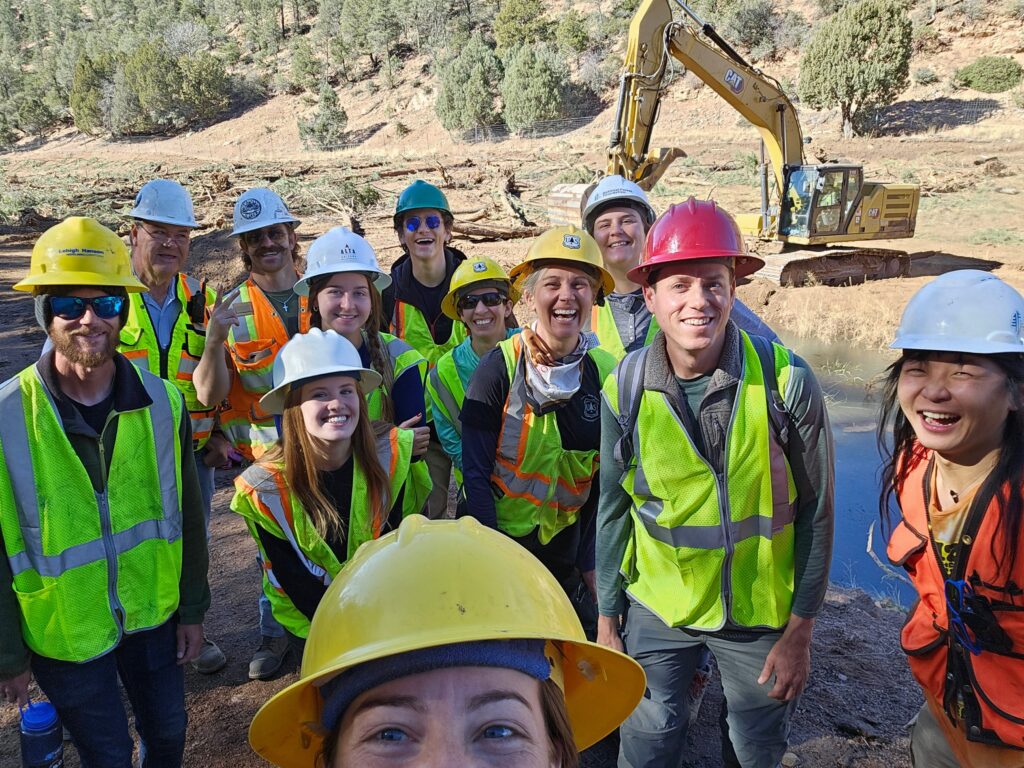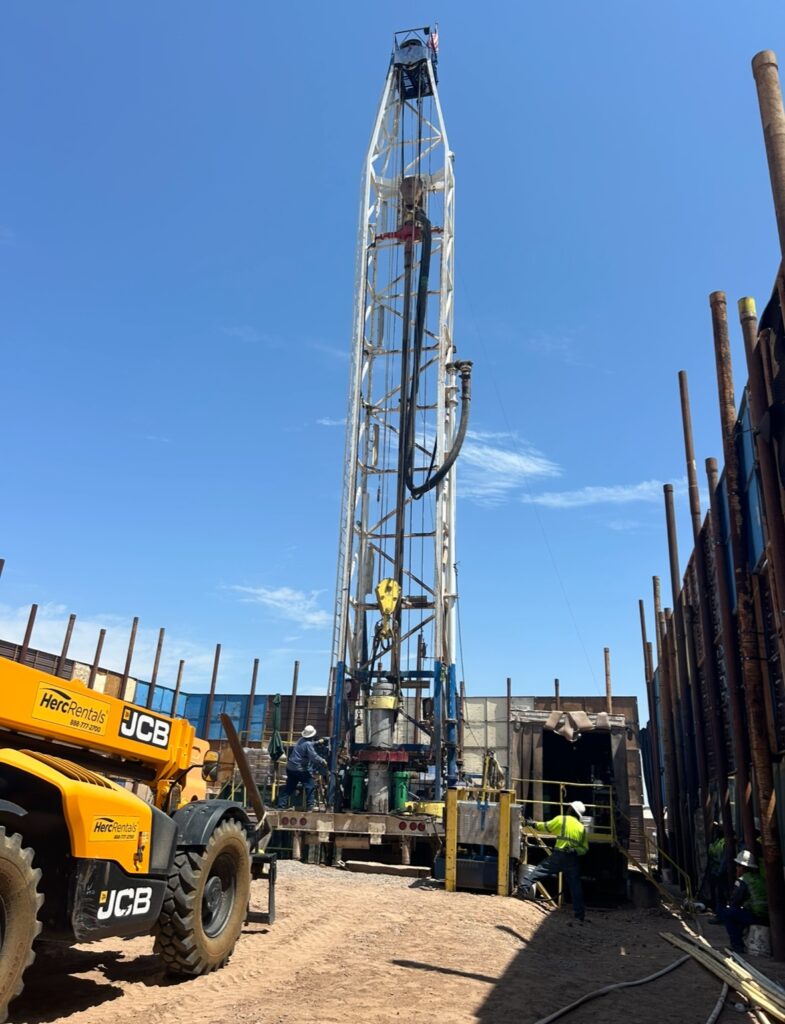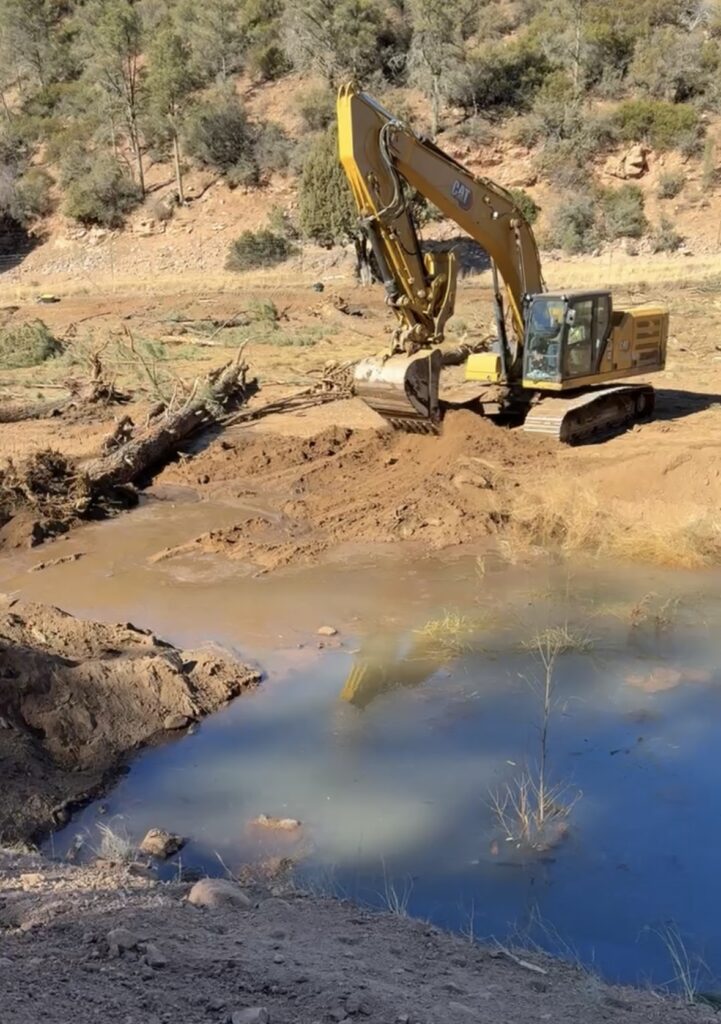— Emma Cornelius
During my intern scholarship, I had the opportunity to gain hands-on experience in the field of water resources and hydrogeology. This experience was divided into four distinct phases, each providing valuable insights and practical knowledge.
My first 2 weeks were spent at LRE Water, where I was actively involved in well installation and development. This phase of the scholarship provided me with a strong foundation in the practical aspects of groundwater extraction and management. I learned about the importance of well design in ensuring efficient water extraction and the technical aspects of well installation, including drilling, casing installation, and well development techniques such as swabbing and airlifting. Additionally, I observed and assisted in conducting well videos and a dummy test to ensure the drilled well was straight and plumb so that the pump could be inserted.
After completing my time at LRE Water, I spent a week with the field team at ADWR. This phase of my intern scholarship exposed me to a variety of field activities that are essential for groundwater monitoring and management. One of the key tasks I participated in was the installation of Continuously Operating Reference Stations (CORS), which are used for high-precision geodetic measurements. I learned how these stations are crucial for maintaining the accuracy of GPS data, which is vital for various applications, including groundwater modeling and monitoring. I was involved in measuring the depth to water in various wells. This task provided me with practical experience in using different types of water level meters and understanding the importance of accurate depth-to-water measurements for monitoring groundwater levels and trends over time. On top of those experiences, I had the opportunity to tour the Hawk Rock earth fissure. This highlighted the importance of understanding earth fissures and subsidence in managing groundwater sustainably.
The next week of my intern scholarship was spent with the groundwater modeling team at ADWR, where I focused on geospatial analysis and subsurface modeling. I was introduced to ArcGIS Pro, a powerful tool for geospatial analysis, and learned the basics of georeferencing, which involves aligning spatial data to a known coordinate system. This skill is essential for integrating various types of spatial data, such as well logs and geological maps, into a coherent model. One of the key projects I worked on involved comparing USGS resistivity surveys to the lithology of several well logs. This comparison was aimed at determining the subsurface rock layers in a specific area, which is crucial for understanding the hydrogeological conditions and potential aquifer properties. Through this project, I gained a deeper understanding of how different geophysical and geological data sets can be integrated to develop a more accurate model of the subsurface.
During the last week of my intern scholarship, I worked with the hydrology team at Tonto National Forest, focusing on surface water hydrology. One of the highlights was assisting with a fen restoration project in Little Green Valley near Payson. This work emphasized the importance of preserving these unique wetland ecosystems, which play a critical role in maintaining water quality, supporting biodiversity, and regulating surface water flows. Observing the restoration efforts firsthand, I gained insight into the challenges of hydrological restoration which deepened my understanding of practical restoration techniques and the ecological significance of fens in forested landscapes.
Overall, this experience provided me with a comprehensive understanding of various aspects of groundwater and surface water management, from well installation and field measurements to geospatial analysis and subsurface modeling to a fen restoration. Each phase built upon the previous one, allowing me to develop a well-rounded skill set that I believe will be invaluable in my future career in water resources and hydrology. The hands-on experience I gained, coupled with the knowledge I acquired, has given me a strong foundation to pursue further studies and professional opportunities in this field.


